|
I remember feeling refreshed when Laudato Si’ was published just over two years ago. The opening line the Pope selected, “Praise be to you, my Lord,” echoes St. Francis of Assisi’s framing of the earth as a “sister with whom we share our life and a beautiful mother who opens her arms to embrace us.” For me, an encyclical letter being released carried the same weight as seeing a long-hyped movie on opening night; as the second-highest ranking Church document, encyclicals like Laudato Si’ carry high papal priority and are written in the Holy Father’s own hand so that their views can authoritatively end a theological debate on a particular question. I very much enjoyed reading and discussing its rich contents among my peers. In the light of Christian spirituality, the document links environmental stewardship to both authentic human ecology and also the need to care for and protect those who might suffer from rash and greedy ecological harvesting. These discussions about the encyclical continued during the school year with university-sponsored symposiums, panels, service activities, and curriculum integrations designed to continue to unpack the impressive document from what many might erroneously dismiss as simply a work about climate change and the need to live sustainably.
A few months after he released Laudato Si’, Pope Francis announced in a letter to members of the curia his intention to establish a “World Day of Prayer for the Care of Creation” on the first day of September each year. The purpose of such a day, in my opinion, is to globally unite efforts by the Church and Her collaborators regarding the care of creation—efforts that continue throughout the year and which the Church re-consecrates and re-entrusts to God as a work beyond human hands. The same goes for similar days established by previous popes and the bishops conferences such as the International Day of Prayer and Awareness Against Human Trafficking, the Fortnight for Freedom, the World Day for Consecrated Life, the World Day of Prayer for Vocations, World Youth Day, World Marriage Day, and others. Through the establishment of these days, the Church seeks to galvanize us with a call to action to refresh our focus and attention to matters which affect us all physically, culturally, and spiritually. The annual World Day of Prayer for the Care of Creation is geared to unite our prayers with acts of witness: [It] will offer individual believers and communities a fitting opportunity to reaffirm their personal vocation to be stewards of creation, to thank God for the wonderful handiwork which he has entrusted to our care, and to implore his help for the protection of creation as well as his pardon for the sins committed against the world in which we live. Anyone can recycle, turn off unnecessary lights, or use public transportation, but what Pope Francis invites us to do (while reiterating the “nobility… [of these] little actions”) is something much more substantial and fulfilling. Laudato Si’ is his personal call for each of us to live out an “integral ecology,” which does not neglect our relationships with God, other human beings (especially those often neglected by society), and the natural creation of Earth. Pope Francis highlights the fact that all are integrated. To allow one relationship to suffer is to allow the others to suffer as well. The World Day of Prayer for the Care of Creation is not intended as a rude awakening to the artificial harm being inflicted upon the planet. The natural creation that surrounds us is inherently “good” because God Himself wonderfully designed and detailed everything… and we human beings are the crowning achievement (see Genesis 1:26). When we behold His wonders, we should be moved to praise Him for everything He has set before us as part of our earthly home (see Psalms 104 and 148)! As we celebrate the World Day of Prayer for the Care of Creation, I invite you to read or reread Laudato Si’. In doing so, may we be moved to want to preserve and protect our world in recognition of its inherent dignity so future generations may continue to marvel and wonder at the works of God. “May the glory of the LORD endure forever; may the LORD be glad in his works!” -Psalm 104 Question for Reflection: How can you live out what Pope Francis calls an "integral ecology"? For more resources on Laudato Si', please click here.
0 Comments
On this day we memorialize the death of John the Baptist, the man who introduced Jesus’s ministry to the world and whom Jesus said was the greatest man born among women (Matt 11:11). Yet, despite this accolade from the Son of Man himself, the Gospels tell us that John the Baptist also seems to have wrestled with something that many of us are still wrestling with today: doubt. Yes, even the Baptist, the camel-shirt-wearing, desert dwelling, locust-crunching prophet who calls the crowds that come to him a “brood of vipers,” sat in prison and wondered about whether the “nobody” carpenter from Nazareth was who he said he was.
The Gospels suggest that part of John’s doubt seems to have come from his expectations for Jesus. When John is called by God out of the desert, he announces the coming of the Messiah with metaphors of destruction: “Even now the ax lies at the root of the trees. Therefore every tree that does not bear good fruit will be cut down and thrown into the fire. I am baptizing you with water, for repentance, but the one who is coming after me is mightier than I. I am not worthy to carry his sandals. He will baptize you with the holy Spirit and fire. His winnowing fan is in his hand. He will clear his threshing floor and gather his wheat into his barn, but the chaff he will burn with unquenchable fire.” (Matt 3:10-12) John’s expectation for the Messiah is that he will cleanse through destruction; that he will rid the world of sin, but in a grandiose, violent way. His metaphors and proclamations are laced with references to fire and culling, suggesting that John envisions Jesus the way we tend to envision John—full of passion, intensity, even a little frightening. When Christ comes to John for baptism, Christ does not condemn John’s vision, but rather Jesus’ ministry adds to the story. Rather than cutting the root from the tree, Jesus invites sinners to dine with him. Rather than shaking his fists from the river, Jesus sits on the mountain top and declares the poor blessed. Later, when John is imprisoned for publicly condemning the unlawful marriage of Herod, he receives word of Jesus’ latest miracles: the healing of a Centurion’s slave and raising of a widow’s dead son. The Gospels paint an interesting portrait of John’s response. When John heard in prison of the works of the Messiah, he sent his disciples to him with this question, “Are you the one who is to come, or should we look for another?” (Matt 11:2-3) I can imagine John sitting in the corner of his cell, hearing of these miracles and wondering whether everything he thought about the Carpenter had been wrong. In the darkness of his cell, alone, surely knowing he would soon die, John doubts whether this man who heals is actually the ax he had been expecting. There are two things that stand out about John’s moment of doubt: First, John’s response to his doubt is to go to the source himself. John does not sit frustrated and angry, allowing his doubt to grow into resentment or apathy like so many of us do today. He sends his disciples to Jesus directly. John’s response should serve as a model for our own inquiries. Prayer, direct communication with Christ, is necessary to knowing the truth about his identity. Imagine it in terms of a marriage. What if a husband and wife never communicated with one another when they were concerned with the actions of the other? Not only does a potentially problematic action go unaddressed, but the spouse who desires to know the mind of her lover cannot. She risks constructing a faulty image in her head, one that further drives a wedge between herself and her husband. So too do we drive a wedge between ourselves and the Lord when we doubt and leave those doubts untethered by prayer. When we question Christ, when we question our faith, when we question what is right or how to respond to injustice with charity, we should take those questions to prayer and ask for understanding. We should ask to see God as he truly is, not as we want him to be. The second important thing to note about John’s moment of doubt is Jesus’ response. Matthew reports it this way: Jesus said to them in reply, “Go and tell John what you hear and see: the blind regain their sight, the lame walk, lepers are cleansed, the deaf hear, the dead are raised, and the poor have the good news proclaimed to them. And blessed is the one who takes no offense at me.” As they were going off, Jesus began to speak to the crowds about John, “What did you go out to the desert to see? A reed swayed by the wind? Then what did you go out to see? Someone dressed in fine clothing? Those who wear fine clothing are in royal palaces. Then why did you go out? To see a prophet? Yes, I tell you, and more than a prophet. This is the one about whom it is written: ‘Behold, I am sending my messenger ahead of you; he will prepare your way before you.’ Amen, I say to you, among those born of women there has been none greater than John the Baptist; yet the least in the kingdom of heaven is greater than he. (Matt 11:7-10). In his response to John and the crowds, Jesus first reaffirms his own actions, for these are the actions foretold in Scripture of the coming of the Messiah. He does not answer with words, but with deeds, highlighting the truth that “by their fruit will you know them.” Jesus then also seems to chastise the crowd for their judgment of John. “What did you go out to the desert to see? A reed swayed by the wind?” Jesus says that John’s vision of Christ is admirable, as it comes from place of virtue and strength. Although John initially sees Jesus only through his own eyes, Jesus recognizes that those eyes earnestly desire the truth and have been well formed. Jesus rewards John for his faith, even if it is imperfect. He does not allow John to remain misguided, but he recognizes John’s effort to know Christ as well as he can and rewards him with the accolade “no greater than.” On the memorial of his death, let us try to be a little more like John the Baptist. Let us yearn for the Lord. Let us know him in prayer and the sacraments. Let us have the humility to open ourselves and our expectations to revision. Let us place our doubts before the Cross and allow John’s words to guide our prayers: “He must increase; I must decrease.” Questions for Reflection: How can moments of doubt make your faith stronger? Is Jesus inviting you to “go to the source” – to come to him in prayer? When I was at a recent Bible study with friends, we prayed about and discussed the passage from Matthew 14:22-33 – the story of Jesus calling Peter out of the boat to walk to him on water. As Peter sees the wind and waves around him, his trust in Jesus begins to falter and he starts to sink. When he cries out for help, Jesus immediately catches Peter, saying, “Oh you of little faith, why did you doubt?” In many ways, we, too, are like Peter: cautiously trusting the Lord, but when tested in the chaos, we learn our trust isn’t as strong as it should be. This is where we can look to St. Bartholomew for guidance. St. Bartholomew (also known as Nathanael), whose feast day is August 24th, was one of the 12 Apostles mentioned in the Synoptic Gospels. While little is known of St. Bartholomew, we see his true personality in John 1:43-51. The apostle Philip was a friend of Bartholomew, an Israelite. As Philip tells Bartholomew that he, Andrew, and Peter found the Son of God, St. Bartholomew responds, “Can anything good come from Nazareth?” Later, Jesus says of him, “Here is a true Israelite. There is no duplicity in him.” Jesus also says he saw Bartholomew under a fig tree before Philip called him, leading us to understand Bartholomew was in prayer with the Lord. St. Bartholomew immediately answers, “Rabbi, you are the Son of God; you are the King of Israel.” This passage reveals St. Bartholomew’s blunt honesty. He is open about his doubts of any good coming from Nazareth, but does not hesitate in his belief when Jesus reveals himself. This is why Jesus calls St. Bartholomew an Israelite with no deceit. Through St. Bartholomew, we see qualities that Jesus praises: honesty, truth seeking, sincerity and thoughtfulness. These good attributes allow Jesus to come into St. Bartholomew’s life and build trust with him. Likewise, St. Bartholomew is able to open up to new perspectives and ruminations on spiritual matters. In Matthew 5:8, we learn from the Beatitudes, “Blessed are the clean of heart, for they will see God.” St. Bartholomew is a model to us of this purity of heart. When we seek truth, we can more clearly see God and respond to his call. Living apart from the truth dims our relationship with God and our ability to hear his call. Dishonesty makes life more difficult for us to know the truth, which is built on trust. The Catechism of the Catholic faith says that “placing our trust in Christ’s promises and relying not on our own strength, but on the help of the grace of the Holy Spirit” enables us to become heirs in hope of eternal life. Ultimately, God is truth itself. We learn from St. Bartholomew’s example that we can come to know God better in reflection through prayer. To know God through prayer is to know truth and therefore trust. This open line of communication with God unlocks our minds to explore different perspectives and gives us the ability and willingness to overcome critiques, which is necessary for evangelization. Even in the above passage from Matthew 14:22-33, where Peter walks out onto the water, we learn at the very beginning of the story that Jesus found time to pray and reflect in solitude with his Father before meeting with the Apostles in the boat. St. Bartholomew’s prayer led him to truth. He trusted in God and then shared that truth with others in order to convert them to Christianity. After Jesus’ ascension, St. Bartholomew traveled farther than most of the other Apostles. He visited Syria, Ethiopia, India, and Armenia, preaching the Gospel and God’s word. It is believed St. Bartholomew was martyred in Armenia. May we learn to trust God through St. Bartholomew’s example! “The priesthood is the love of the heart of Jesus. When you see a priest, think of our Lord Jesus Christ." - St. John Marie Vianney Everything about my experience of Catholicism growing up led me to believe that priests were always kind, middle-aged men who had their act together, but were fairly inaccessible. It seemed that the Church was dying, men were no longer answering the call to the priesthood, and a life of faith had become irrelevant, right? Wrong. My perspective changed freshman year of college at The Catholic University of America. I was astounded to see younger men with collars, and even more astounded to learn that these men, who weren’t much different from me, were willing to give up everything (a family, career, independent life) for the glory of God and the good of His people. As I have come into my own life of faith and started working full-time for the Church, I consider it a great honor to call many of these courageous men my friends. Priests serve as a constant reminder that God, in His goodness, never intended for us to experience life alone. Through their relationships, their witness, and the sacraments, priests prove that God never abandons His people. Simply put, the Church would not exist without the sacraments (the Eucharist, in particular), and the Church could not exist without the priests who bring these sacraments to us each and every day. Over the last several years, as I have seen friends go through seminary and get ordained, I have grown in appreciation of how great their sacrifice is. But more than that, I have also seen how great the reward is when we throw ourselves into our vocation with reckless abandon. I remember distinctly asking one dear friend how he could do it all – leave behind everything that the world tells him he needs in pursuit of a higher calling – and he simply looked me in the eye and said, “Lauren, the Lord makes it easy.” These men have not only been a beautiful witness for the world, but they have radically helped shape the course of my life and my heart. At every major crossroads of a person’s life – birth, marriage, growth of a family, death – a priest is there offering himself and bringing the sacraments. The men in formation for the holy priesthood and the priests who are out in the world “in the trenches” deserve our gratitude and our prayers. The priesthood shows the world that God’s people are worth giving up everything for. So to all of you priests: thank you. Thank you for bringing us the Eucharist. Thank you for answering tear-filled phone calls. Thank you for teaching us how to be good friends. Thank you for showing us the importance of relationships rooted in prayer. Thank you for being our brothers and for personifying our Heavenly Father. But most importantly, thank you for showing us the joy that comes when we fully surrender our lives and our wills to the one who is Love. Question for Reflection : Have you ever experienced the love of Christ through the ministerial priesthood ? To learn more about vocational discernment, please click here. When I was in 8th grade, I helped teach for my parish’s religious education program and counted the hours toward my required community service time before receiving the Sacrament of Confirmation. I was an assistant for the 5th grade, and I thought it was the coolest thing. I could share with the class what I knew about the Church, even teaching them at one point how to pray the Rosary. Looking back, it seems like I was destined to teach in a Catholic school! After college, I began working at my current school in the Archdiocese of Washington (ADW), where I continue to teach and share my faith with the students. To this day, I continue to teach religion. I strive to form my students as disciples according to six elements of Catholic life: Knowledge of the Faith, Liturgy and Sacraments, Morality, Prayer, Education for Living in Christian Community, and Evangelization and Apostolic Life.
For catechists who actively pass on the Word of God to others, teaching the faith can become almost second nature. For instance, at my school, we incorporate core Jesuit principles into the curriculum each day and reflect on our own actions through prayer. In my pre-K classroom, we use these principles to talk about kindness and loving others as St. Ignatius taught. In a special way, my students are learning how to be good friends and love others the way Jesus did. In the Archdiocese of Washington (ADW), the religious curriculum has standards by which its content is measured and assessed—like any other subject area in school. In fact, ADW is trying to support catechists to do more to collaborate and keep kids engaged and excited about learning their faith. Professional development of catechists is crucial to a school, parish, or community. Learning how to be better witnesses of the faith ensures that our children are receiving the best formation of conscience they can get. Although there are people certified and educated to teach as catechists, most of us are already fulfilling that duty as faith-filled adults in the Church who witness to and spread the Gospel. Below is a list I have compiled of a description of a catechist. After reading it, do you feel called to become one?
For more information, we invite you to view the following webinar at the bottom of the page:
Question for Reflection: How can you teach the faith to others in your everyday life? In 61 days, I will no longer have my maiden name, will no longer have to mark “single” on tax forms, and will be the happiest girl in the world. This is because I will marry my best friend at our parish in front of our family and friends, and thus become man and wife. But before we’re retired and sitting together on the porch swing celebrating many years of happy marriage, my fiancé and I have some work to do.
The journey of preparing in mind, body, and soul for the vocation of marriage has been an eventful one. Wedding planning isn’t easy. It has tested our patience and our communication skills. But on that Saturday afternoon 61 days away, when we commit ourselves to each other, we are making a statement. In our profession of vows, we will be showing the people in attendance that Christ is a central part of our lives, and that God is at the center of our relationship. Throughout our ceremony, we are inviting our guests to reflect on God’s love for them and to join us in sharing our faith as the Body of Christ. Sacraments are meant to bring people closer to Christ. Those present will witness this sacrament from wherever they are in their walk of life and faith journey, and hopefully have an encounter with God. We look forward to providing a moment of evangelization as missionary disciples through our marriage. My fiancé and I have learned a lot from the example of married friends and family who live out their Catholic faith. One couple that recently welcomed an addition to their family has been instrumental in answering questions we’ve had about what happens next and giving us advice throughout our marital preparation. They’ve helped my fiancé and I better understand what it means to be a young and newlywed couple, juggling jobs, obstacles, and life events, and doing it all with faith in God. They and so many others have shown us what it means to live out marriage with love for God and each other. In the Archdiocese of Washington, two other couples have been examples of commitment and love. Ephraim and Sussie, who have been married for 25 years, and Bob and Laurin, who have been married for 75 years, talk about their love stories and how they cherish each other to this day. Couples like these have had to work hard at their marriage through good times and bad—just as we will. Through it all, they keep God at the center of their relationships. During these next 61 days, I will pray for my future husband, for myself as a wife, and for God’s grace to be present through it all. We will work at our marriage, this is for certain—and it won’t be easy. But with communication, understanding, forgiveness, and prayer, we will make it. During the Pre-Cana course we attended a few months ago, we learned a few things about communication and prayer that I would like to impart to anyone, whether you are in a relationship, have great friendships, or are several years into your marriage. My fiancé helped me create a list of the top ten things that stuck out to us. I hope they help you, too!
For more resources on Marriage and Family, click here. Questions for Reflection: How can the example of married and engaged couples help those discerning marriage? Are there people in your life that you look to as witnesses of fruitful marriage? "I will give them a new heart, and put a new spirit within them." -Ezekiel 11:19 I hold my son Leo closely, rocking him back and forth in the quiet of the night. He throws his head back, pushes against me, and babbles to keep himself awake. As his mother, I must be patient and persistent. The fruit of my efforts results in his deep breathing, dangling arms, and heavy eyelids. Leo is now ten months old—crawling, pulling himself up, climbing. While he still looks to me for assurance and affirmation, he much prefers exploration to stillness. Not wanting to miss a thing about this big world, he wrestles with me as I put him down for naps and at bedtime. I often think as I sing to Leo and soothe him to sleep: This is how I am with God. I wrestle with him, pushing back, filling my life with distraction. I prefer my will—my way—to his own. I forget to rest in his stillness. In my graduate program, a professor once shared a particularly beautiful insight that still strikes me today. He said that if two human beings rest long enough on each other’s chests, their hearts sync up and beat in rhythm with one another. As a mother, this insight is especially poignant and beautiful to me—I think of my son’s heart slowing down and mine speeding up to embrace and beat as one. Then I apply this truth to God: have I allowed myself to rest in him? Do our hearts beat as one? The Gospels tell us that John, the Beloved Disciple, reclined on the chest (kolpos in Greek) of Christ at the Last Supper. Applying my professor’s insight to the Gospel, we can gather from this image that John’s heart beat in time with Christ’s, whose own heart beat perfectly with his Heavenly Father’s. As Christians, we are all called and invited to become the Beloved Disciple. This is not a privilege for a select few. Resting on the kolpos of Christ and allowing our hearts to beat in time with his gives our lives true meaning and fulfillment. As Pope Francis said, “The Heart of the Good Shepherd tells us that his love is limitless; it is never exhausted and it never gives up. There we see his infinite and boundless self-giving; there we find the source of that faithful and meek love which sets free and makes others free; there we constantly discover anew that Jesus loves us even to the end’ (Jn 13:1), without ever being imposing.” This intimacy with God, however, does not happen overnight. The Gospel does not say that John rested on the chest of Christ right after Jesus called him to discipleship on the Sea of Galilee. This intimacy was the fruit of years spent in the presence of Jesus. It is the fruit of a deep relationship with him—sitting at his feet, sharing meals, listening to his preaching, witnessing his miracles. We do not rest on the chest of a stranger. We are called, therefore, to grow in intimacy with God by opening our hearts to his. As the Catechism of the Catholic Church states, “It is the heart that prays. If our heart is far from God, the words of prayer are in vain.” Though Christ opens his heart to all of his children, we are called to build that intimacy with him, as John did, through prayer, stillness, the sacraments, and service. The famous quote of St. Augustine reminds us that our hearts are restless until they rest in God. And so we will not feel satisfied in this world until we have allowed ourselves to rest in the heart, on the kolpos, of Christ. “God’s heart calls to our hearts, “ Pope Benedict XVI observed in his homily on the Solemnity of the Sacred Heart of Jesus. When we allow ourselves to rest in the heart of Christ, he invites us “to come out of ourselves, to forsake our human certainties, to trust in him and, by following his example, to make ourselves a gift of unbounded love.” Our encounter with the heart of the Good Shepherd, therefore, is what strengthens us to go out in our respective vocations and live as missionary disciples. May we rest on the kolpos of Christ and experience his perfect charity so that we may become “gifts of unbounded love” to the world. As we deepen our intimacy with God, let us look to John’s childlike trust and ask for his intercession in order to become who we were created to be: beloved disciples. Questions for Reflection: Do certain things keep you from growing in your relationship with Christ? How might God be calling you to rest in him? For resources on prayer, please click here. Today, August 8th, is the feast day of St. Dominic de Guzman, founder of the Order of Preachers—the Dominicans.
St. Dominic was born around the year 1170, and he came from a noble and devout family. After studying at the University of Palencia for ten years and becoming a priest, Dominic eventually went to southern France to fight the Albigensian heresy. While there, he determined that a return to the preaching style of the Apostles in the time of Christ—to engage with individuals, to go where the Spirit led them, and to live simply—would most effectively preach the Gospel message and bring heretics and converts back to the faith. After spending several years evangelizing and preaching, Dominic had acquired a small band of followers. With them, he founded a religious order, basing it on the Rule of St. Augustine and giving it the mission of “preaching and the salvation of souls,” with an emphasis on the importance of spiritual and intellectual formation. The Order of Preachers was officially recognized by Pope Honorius III in late 1216. In a time when opposing sides often resorted to violence, St. Dominic chose to combat the Albigensian heresy through open dialogue rather than bloodshed. By having a deep understanding of Scripture, tradition, and philosophy, and by engaging with individuals on an intellectual and moral level, he was able to bring back into the faith many of those who had fallen into error. The Order of Preachers that he founded continues to embrace these principles by preparing preachers who are “intellectually informed and pastorally competent.” St. Dominic chose to settle the first members of his order in university cities so that they could gain the intellectual training they would need to become engaging and morally compelling preachers of God’s word. The Order of Preachers, to this day, still heavily emphasizes the importance of spiritual and intellectual formation in preparation for their pastoral work. The Dominican House of Studies in Washington, D.C. continues in the Dominican tradition of establishing communities of Dominicans near universities. Dominicans residing at the House of Studies teach at nearby at The Catholic University of America, assist with Masses at parishes in the Archdiocese of Washington, and produce a journal. Reading about the origins of the Dominicans and their continued success reminds me of the important place that religious study ought to hold in even the layman’s spiritual life. While we cannot all get degrees in theology, feeding the intellectual curiosity about our faith can lead us deeper into our relationship with God and to a better understanding of his truth. Reading more about our faith, or about the lives of the saints we wish to emulate, can also better equip us to evangelize when the opportunity arises. While we may not be reading the Summa Theologica or the Catechism cover to cover, there is a plethora of material—from papal encyclicals and the core documents of Vatican II, to letters and diaries of the saints—available for us to deepen our own understanding of the faith and to be able to share it with others. I myself have been inspired by reading about the life of St. Dominic de Guzman and the work of the Order of Preachers. As a result, I have decided to further engage my faith through more rigorous spiritual reading. I think a good place to start is with a course of study on one’s vocation—for me, that means marriage and parenthood, and thus my “to read” list includes Three to Get Married by Fulton Sheen and the papal encyclicals Castii Conubii and Humanae Vitae. What will you read to engage more deeply with your faith? Question for Reflection: How can the life of St. Dominic and his emphasis on intellectual formation help you deepen your spiritual life? I remember the first time I experienced Eucharistic Adoration. During my first week of college, I was walking back to my residence hall after grabbing dinner with some friends of mine. As we walked back into our dorm, one smiling upperclassmen was talking to some other freshman in the lobby. He saw us and made a beeline. I was only five steps away from the elevator, maybe he wouldn’t catch me. Alas, the elevator did not come in time and we ended up chatting with this friendly upperclassman. As he introduced himself, he also invited us to praise and worship Adoration that night. He promised us there would be a ton of good food afterwards. Though there were posters about this event throughout the dorm and we knew about it, we did not previously plan on attending. However, after being personally invited, being called by our names, we decided to give it a try. It was one friendly person’s invitation (and yes, the promise of food) which forever changed my faith-life. After going to Adoration and the fellowship held immediately afterwards with friends, I was hooked. College students and young adults are in a unique place in their faith journey. Many are seeking answers to some pretty big life questions. As the Church, we have the joy of being called to reach out to these sometimes marginalized members of our community and invite them to experience the love of Christ. Yet, how do we do that? As a college student myself and someone who ministers to undergraduate students, I have found that there is one way in which your parish can successfully engage Catholic young adults and college students. All college students and young adults seek a place to belong. And what better place is there than the Church of Jesus Christ? The parish community can seek to provide different opportunities for college students and young adults attending the parish to get together for fellowship. Having faithful Catholic friends your age who provide you with support on your spiritual journey is indispensable. The Christian life is not individualistic in nature, but one marked by interdependence. Being a parish which hosts events that foster communion between young adults is a key way to keep young adults engaged in parish life. Some parishes successfully do this by hosting mini-Theology on Tap series at a local restaurant, or something as simple as hosting praise and worship Adoration followed by a meal. These are just two examples of how you can help young adults feel like they belong in your parish community and experience Christian fellowship with their peers. One principle tip is to host events which have a liturgical aspect (pray compline together or have a holy hour) and a fellowship aspect (do not underestimate the power of food!). Yet, you might be thinking, there are no college students or young adults currently active in my parish! Pope Francis might have some wisdom to share with us. During Pope Francis’ journey to Brazil for World Youth Day in 2013, he told an assembly of bishops that "we cannot keep ourselves shut up in parishes, in our communities, when so many people are waiting for the Gospel.” Each baptized member of the parish community has a responsibility to be hospitable and welcoming. Each member of the parish community must be marked by their missionary zeal. Evangelization is not simply the job of the parish staff, but the calling and the joy of each Christian. Hence, it is your calling, not somebody else’s, to reach out to inactive college students or young adults and invite them back to the parish so that they can experience the love of Jesus Christ. This involves each person in the parish calling students by name. It was that simple invitation which brought me into regularly participating in the life of the Church. This responsibility, this call of each Christian to invite students and young adults by name, also becomes one of the greatest joys. *This post was originally published on our blog on April 14, 2016. This past week, 48 members of the Society of the Catholic Apostolate (Pallottine Fathers and Brothers) serving in North America gathered for a biennial week of reflection and study. We considered our response to God, Infinite Love and Mercy, through our social-charitable work in light of the charism of St. Vincent Pallotti. We were also inspired by and reflected on the call of Pope Francis, in his teaching and action, to care for those on the peripheries. Pallotti believed that we Pallottines together with all those who follow his charism as part of his association, the Union of Catholic Apostolate , are called to revive faith, rekindle charity, and form apostles. The connection between faith and charity in response to our experience of the love of Christ was a central one in the teachings of St. Vincent Pallotti. This same connection between faith and charity (inclusive of the care, protection, and advocacy for the life and dignity of the human person) is summarized by Pope Francis in his apostolic exhortation, Evangelii Gaudium (The Joy of the Gospel). This connection was a central focus of the unprecedented USCCB Convocation of Catholic Leaders: The Joy of the Gospel in America. It is also found in a new document of the U.S. Bishops on evangelization, Living as Missionary Disciples: A Resource for Evangelization. As missionary disciples (apostles), we are sent out into the world to accompany others and help them encounter Jesus Christ in and through his Church. We do this through our witness in word and in deed, not simply in the Church, but especially in the world. There is much work to be done as Pope Francis reminds us: "Even if many are now involved in lay ministries, this involvement is not reflected in a greater penetration of Christian values in the social, political and economic sectors. It often remains tied to tasks within the Church, without a real commitment to applying the Gospel to the transformation of society. The formation of the laity and the evangelization of professional and intellectual life represent a significant pastoral challenge" ( Evangelii Gaudium, 102). Let us take up this challenge even more fully! The Catholic Apostolate Center offers all many resources to help us live as missionary disciples. May the charity of Christ urge us on!
|
Details
Archives
July 2024
Categories
All
|
About |
Media |
© COPYRIGHT 2024 | ALL RIGHTS RESERVED



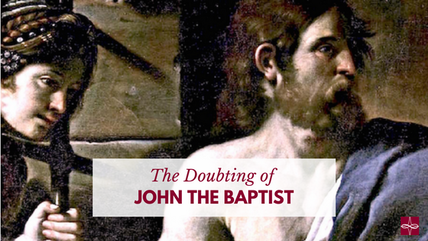

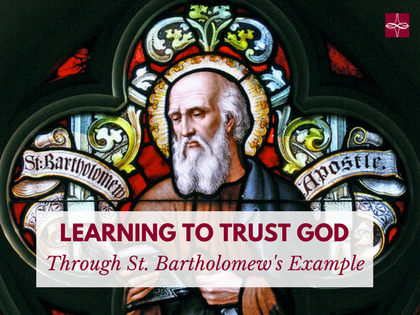

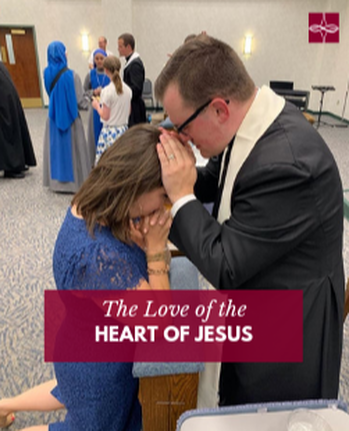

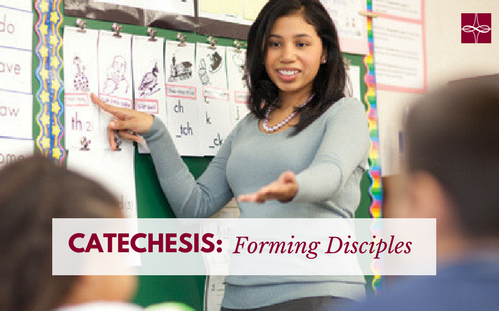



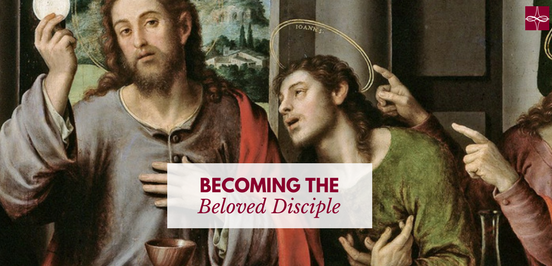

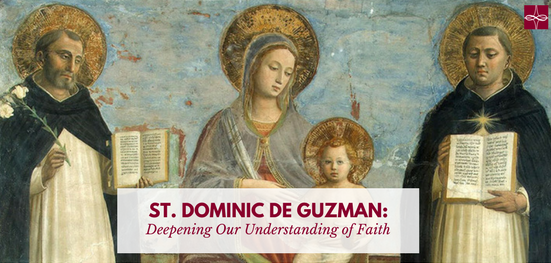

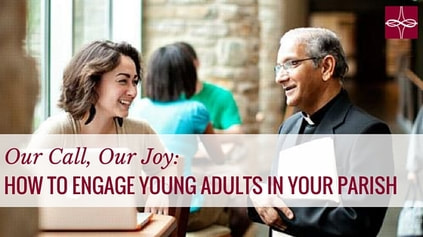

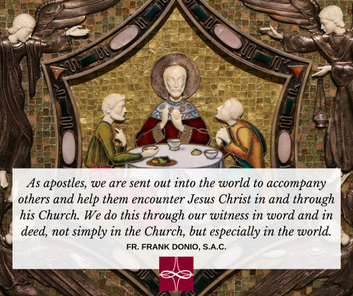
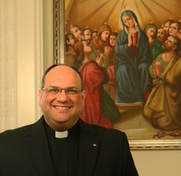
 RSS Feed
RSS Feed